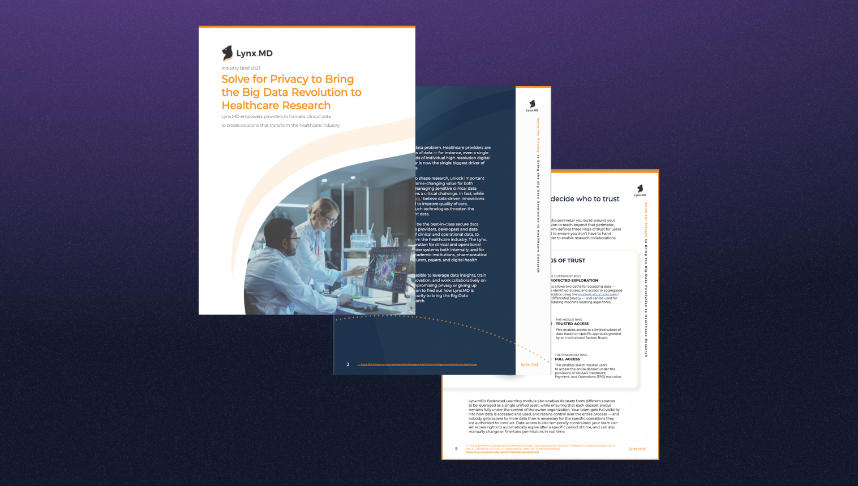
In my role as VP of marketing at Lynx.MD I recently interviewed a partner about why they believe that securely sharing clinical data is the future to better healthcare for all. For the client and their peers, it came down to a very simple principle: “Do Good WIth Data.” Embrace safe, secure, and responsible data sharing to transform healthcare for patients and providers.
Unlocking Insights for Advancements:
The seamless integration of structured and unstructured datasets, coupled with advanced AI and NLP technologies, enables us to extract meaningful insights that were once elusive. According to the NIH, the responsible sharing of healthcare data has accelerated the pace of research, leading to groundbreaking discoveries and advancements.
Fostering Inclusivity Through Data Sharing:
Responsible data sharing in healthcare can empower researchers with a wider range of data to identify and address health disparities, leading to more effective interventions and improved health outcomes for underserved communities. By fostering a collaborative approach to data collection and analysis, healthcare providers can gain a deeper understanding of the unique needs of diverse populations and develop personalized treatment plans that promote inclusivity and equitable access to quality care.
Collaboration Across the Healthcare Ecosystem:
Our partnerships with the entire healthcare ecosystem, including providers, researchers in life science, biopharma, and medtech, exemplify the collaborative spirit that responsible data sharing fosters. Collaborations have not only streamlined operational efficiencies but also facilitated cross-disciplinary approaches to complex healthcare challenges.
Balancing Security and Innovation:
Ensuring the security and privacy of healthcare data is paramount. Striking a delicate balance between safeguarding sensitive information and fostering innovation is a challenge that the industry continues to address. Robust encryption protocols, data anonymization techniques, and stringent access controls are integral components of responsible data-sharing practices. We can not underscore enough the importance of these measures in safeguarding patient confidentiality.
Ethics in Data Utilization:
Responsible data sharing goes hand in hand with ethical considerations. Upholding ethical standards in the utilization of healthcare data is not just a legal obligation but a moral imperative. Researchers, providers, and industry stakeholders must adhere to stringent ethical guidelines to ensure that data usage aligns with patient welfare, organizational values, and societal values.
The Impact on Operational Efficiencies:
Beyond research, the ripple effects of responsible data sharing are felt in operational efficiencies across the healthcare spectrum. Real-time data analytics and predictive modeling, empowered by AI and ML, play a pivotal role in optimizing resource allocation, curbing costs, and elevating patient outcomes. Healthcare organizations are now realizing the transformative impact of AI and ML, recognizing their role in driving data-driven operational enhancements for sustained success.
Do Good With Data
It was an “AHA moment” when the client shared their “Do Good With Data” mantra that so succinctly underscores the transformative potential of responsible data sharing in healthcare. It is a guiding principle that propels healthcare research and operational efficiencies forward. As the custodians of vast datasets, we must remain steadfast in our commitment to responsible data sharing, ensuring that its benefits are harnessed for the greater good of all stakeholders in the healthcare ecosystem.




